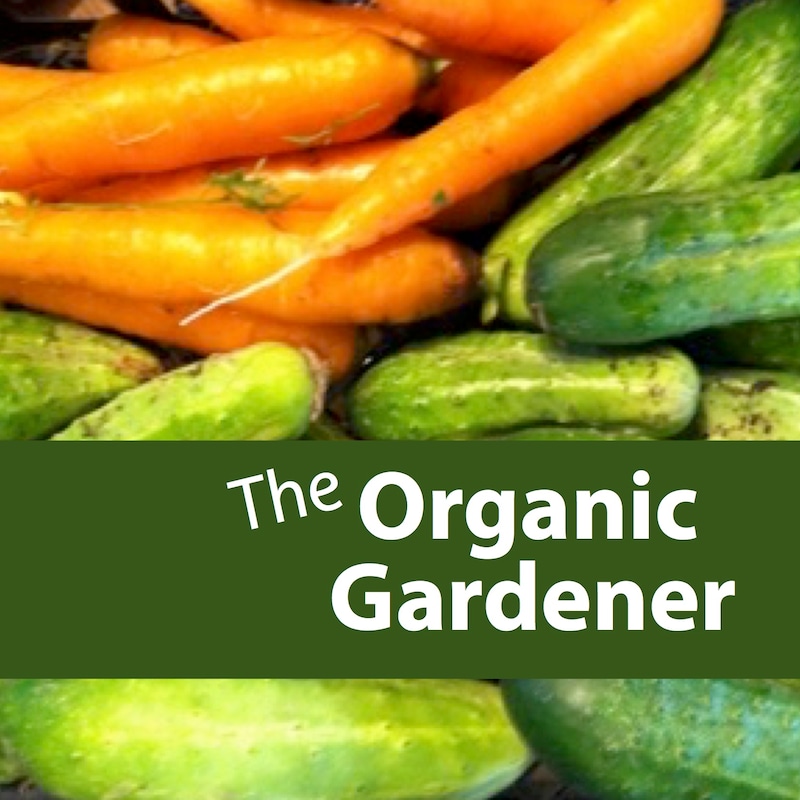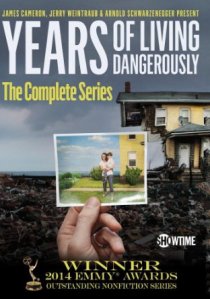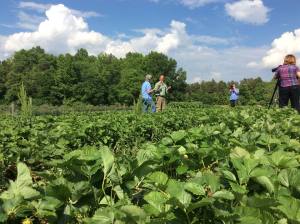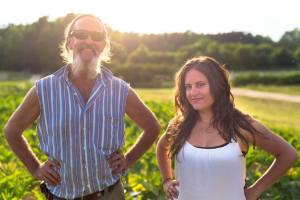
Shownotes
93. Dayna Reggero | Climate Listening Project | NY, NY
Dayna is another guest I met at the AERO Expo in Great Falls this past fall. Dayna is the creator and producer of the Climate Listening Project. You can read about Dayna’s trip to Montana at her blog and see the beautiful and informative clip on Resilient Agriculture she worked on with Dr. Laura Lengnick. One of the very first people she interviewed is one of my heroes Bill McKibben, and so she’s gonna tell us about her wonderful story, her passions, some of the people she’s interviewed and making movies about!
Tell us a little about yourself.
I definitely am currently the creator and producing the Climate Listening Project, it’s a storytelling project. I created it about a year ago. I have some great partners, that’s what makes the project really fun and collaborative. We have a lot of photographers and videographers. Andrea Desky of K23 media is my primary videographer and editor. We work with different people from around the country, we share photos from different photographers, we share stories. Recently we have been collecting poems.
We create videos, and short films, vignettes, so we have a variety of clips, behind the scenes clips, feature photos that we share via Climate Listening Project.com and on the Facebook page climate listening project you can see a variety of behind the scenes and looks into who we have been talking with from farmers to faith leaders listening to their stories and sharing them. We’ve been traveling around the country and soon to be around the world trying to weave these stories with the latest climate science and resilient thinking to share a message of hope!
I like the way you talk about weaving stories of resilience and climate and hope, because I think a lot of us are wondering what we can do. There are a lot of people working on solutions. You are educating people sharing the possibilities it empowers people to be able to do something.
You mentioned a lot of times I’ve worked with different celeberties and thought leaders around the country. This project enables me to use some of my skills, some of my passion, these things I enjoy doing like putting the video camera up and hearing people’s stories. It’s really my little contribution to the climate conversations in addition to the things try to do at home in my daily life. To live more with the ecosystem and not against it. So the daily life things are one thing but everybody, through their art, through their work, through their daily lives, have theses different contributions, even if it’s not necessarily directly affecting them right now are not dealing with it. Because people around the world are dealing with it. It’s good to be conscious of it. To have the conversations to talk about our hopes and our fears and our own stories so that it can spark the innovation and social learning that cultivates community resiliences.
Do you want to tell us about the Faith movie or the Resilient Agricultural one first?
Faith piece we released around the time when the Pope’s encyclicals came to the United States back in June. We listened to stories from faith leaders, we heard from a rabbi, a priest, a pastor and as well as families and community members who are working as activists and climate scientists. We made a compilation of these short stories and that Faith piece is up on the websites and out there. We showed it at the Interfaith Power Light Event. We’ve been collaborating with all these groups from the Natural Resources Defense Council to the Creation Care Alliance of Western North Carolina.
And trying to weave these stories together and show that these people are in fact talking about climate change and in fact creating solutions. One church is un
dertaking a huge solar project and is going to be powering the church through renewable energy thorough alternavive energy to curb climate change. It’s a conversation that we are having, Anna Jane Joyner is the advisor.
She was featured in the Years of Living Dangerously to talk about that this is a moral care for creation. This is important to care for the environment around us and the people around us.
Do you want to tell listeners about what the Years of Living Dangerously was?
Years of  Living Dangerously was on ShowTime last year, they came to film in Asheville NC, I also live here in the forest outside of Asheville. Ian Somerhalder was the celebrity for that episodes. They worked as correspondents. So the creators and producers Years of Living Dangerously put so much amazing creative work into the people who are impacted by climate change as well as the people who are working every day to help! Maryann Hitt the director of the Beyond Coal Campaign with the Sierra Club. Ian Somerhalder, climate scientists like Catherine Hayhoe all these individuals coming together in this series. Harrison Ford, Don Cheadle, America Ferrara, Jessica Alba all these amazing people. We went back and forth from NY to Ashevelli, went up to NY and interviewed creator Joel Bach who is going to be featured in the next video that we release before Paris in December.
Living Dangerously was on ShowTime last year, they came to film in Asheville NC, I also live here in the forest outside of Asheville. Ian Somerhalder was the celebrity for that episodes. They worked as correspondents. So the creators and producers Years of Living Dangerously put so much amazing creative work into the people who are impacted by climate change as well as the people who are working every day to help! Maryann Hitt the director of the Beyond Coal Campaign with the Sierra Club. Ian Somerhalder, climate scientists like Catherine Hayhoe all these individuals coming together in this series. Harrison Ford, Don Cheadle, America Ferrara, Jessica Alba all these amazing people. We went back and forth from NY to Ashevelli, went up to NY and interviewed creator Joel Bach who is going to be featured in the next video that we release before Paris in December.
Years of Living Dangerously is available on all of the things, online at amazon and Netflix and everywhere it’s an amazing series. And they just announced their second season coming soon! It was an honor to work on that last year, with Sierra Club, Beyond Coal Campaign, an the Ian Somerhalder Foundation the Years Project was a great great first season! And I look forward to the second season.
Let’s go back to the faith piece a bit. Who are some of the characters in that and how did you decide to go to a religious perspective?
Anna Jane Joyner is one of the advisors on the Climate Listening Project. Her father lives in NC, in the Charlotte area is an evangelical preacher. During episode 4 (The Preacher’s Daughter) she, as an activist and doing her work, and conversations she has with the faith community and her father and through that lens. When we were starting, brought on Laura Lengick as the agricultural advisor, Anna Jean Joyner as the faith advisor. We are working on the third video now. Looking at the perspectives as communities especially in the south, where I’ve been focusing on, for the first part of the tour. It’s been really nice, on this first part of the tour, it’s been a pleasure to go out and hear from faith leaders, farmers, fishermen, business leaders, people outside of the community I was engaged in, the organic sustainable communities and get out there and here their stories and see the ways they are talking about climate change and the ways they are being impacted by climate change, how it crosses over and mixes up and is part of a larger regional and national and global picture. An evolution following the stories, how do we talk about climate change in a way that inspires people? So we are able to show this Faith video and other churches, other faith groups can take this movie, show it and can start solutions at their church, solar panels or whatever these small steps that people can take, we wanted these pieces can be used as tools.
As Laura Lengnick is traveling around she’s showing the agriculture piece that we mad e to colleges and universities, to farming and agriculture conferences and it’s an opportunity to say this is how other people are talking,,these are creating solutions and innovating that there is hope, and positive dialogue going on and how we can be part of that conversation!
e to colleges and universities, to farming and agriculture conferences and it’s an opportunity to say this is how other people are talking,,these are creating solutions and innovating that there is hope, and positive dialogue going on and how we can be part of that conversation!
Do you want to talk about Dr. Laura Lengnick’s piece?
We started on a Cultivating Resilience tour with Laura Lengnick. She is the author of a new book: Resilient Agriculture: Cultivating Food Systems for a Changing Climate from New Society Publishers
She has been an inspiration as a thought leader innovator, scientist and human being. She basically did her own storytelling project to share via written word in her book. She spoke with 25 award winning farmers from around the country. so as the Climate Listening Project we started that larger national cultivating resilience tour.  First on food and farming resilience conversations we visited 3 farmers. And tried to look at the whole plate, the typical basic american plate. So we had the fruit and vegetable grower, the dairy farmer, and also the animal farmer, the meat farmer.
First on food and farming resilience conversations we visited 3 farmers. And tried to look at the whole plate, the typical basic american plate. So we had the fruit and vegetable grower, the dairy farmer, and also the animal farmer, the meat farmer.
Those farmers were Ken Dawson of Maple Spring Gardens in North Carolina. and Will Harris of White Oak Pastures as well as Tom Trantham of Happy Cows Creamery in South Carolina the dairy farmer.
Just to meet them, to go out to the farms, to hear their stories and be able to connect them. We have different clips on the websites as well as the larger cultivating resilience piece, Laura Lengick narrates, she connects those stories of resilience in a way that shows the impacts and shows the solutions. We also have another piece where we look behind the scenes and shows the other players that we heard from. We talked with Sarah from USDA SouthEast climate hub and heard about her work and shared it in the new clip that we just released. As well as Brian Welch former creator of Ogden Publications the amazing Publisher of Mother Earth News how community can come together then create theses solutions through these conversations. USDA climate hub, the three farmers, and Laura Lengnick to wrap our arms around the ag culture to make this a useful tool. We went to University of Montana, showed the video from the southeast there. 100s of people, great students and community members!
Then we went to AERO conference and great conversations with farmers and folks in the sustainable community. Then went up to Big Sandy to and went to interview Bob Quinn of Quinn Organic Farm, they have a new product Kracklin Kamut! HE’s a scientist and just an amazing innovator.
Kracklin Kamut project will release form his stories with the rest of the Cultivating Resilience Tour.
One of the things I like about your clips because they are short and show a lot of diversity.
Sometimes we’re making memes, sometimes were sharing a photo one of the photographers took and a quote from farmers. Sometimes we’re sharing a longer 2-3 minutes video clip a real vignette on a speaker or specific individual., sometimes it’s different quotes that we are weaving together to tell a story. How do you want to talk about climate change? Do you want to read it, see it, watch it? We try to keep it that way, if it’s a 10 sec Instagram post or its a one minute Facebook Video share.
We shared our new clip directly upload to the new Facebook platform that they have, we have 3.5 minute clip that we uploaded and in just 3 days we had almost 2000 views on that video and really good sharing around the country by these different groups and conversations happening around the country! For us its not about the views but something that will start these new converstainson or encourage folks to accelerate these conversations locally in their communities.
Thank you for noticing that it is short, a lot of what we are doing is putting together these short pieces. Laura Lengick had an interesting conversation she shared with me. A converstation with a poet, a lot of poetry, is amazing to me to think of it in the way, outside of the way you look at it, it has really made me think of it as art. When you are listening to these stories. Sometimes we will spend a whole day with a farmer, or longer, and how do you share that in a way, bits and pieces like a poem, you’re not telling a story, it is not a novel, but taking little pieces and sharing them. Hopefully getting that story across and you are able to honor the person that shared their story in a way that makes them feel good about sharing it, and makes the person watching it also to feel something and maybe inspire them to action.
What action would you like to see people take, since we usually talk about gardening.
My experience in the whole gardening and organic world, after doing those big interviews with the Green Festival, with Bill McKibben and Amy Goodman and all these amazing thought leaders, Web Yearwood?
I went on a tour around California with Discovery, the Chevy Volt and Food Blogger and we interviewed small farmers, food deserts, to biodynamic wineries. I was able to listen to their stories and share stories, that’s sort of what Im trying to do Part of the Climate Listening Project is the idea of encouraging folks to tell their stories. It’s so important food is such a big connector, getting involved locally, regionally, whether it’s through a food policy council, through a master gardener’s groups, your cooperative extension, an organic conference whatever that may be, even the farmers market. Sharing conversations around food, around a table, around a board room, getting these conversations to work, Whatever it may be i think the most important thing is sharing these stories.
When I becomes a gardener, I was doing it in container garden style, in some pots on my porch, anything I could put in these pots. And now since 2012, I’ve been trying, after that food tour, to really grow all these diversity of things. In 2013, we had the wettest year on record, here ever. And that’s why my focus on climate has become such a big part of what I do, I’m able to take my passion for gardening, talking about the environment, and people as part of the larger ecosystem talk about Climate Change and do it though my project. Whatever they are doing or whatever they do, it’s taking these stories, if you are experiencing different things in your garden, on your farm you can take them, share them locally share them regionally and create local and regional solutions to a healthier food systems. I think talking about it all and sharing info is key to this idea of a resilient future.
I saw this cool post on Facebook this week, where people were





